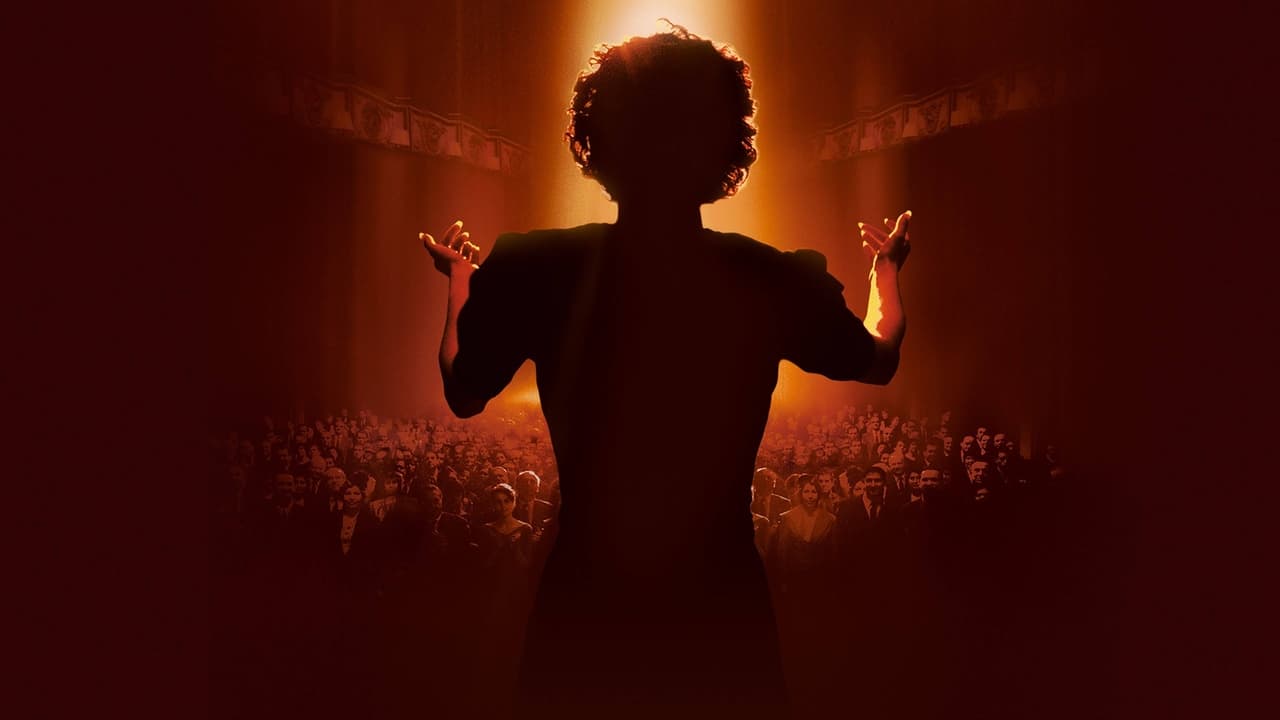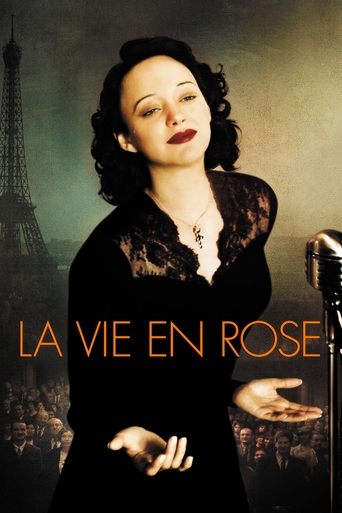

Biopic of the iconic French singer Édith Piaf. Raised by her grandmother in a brothel, she was discovered while singing on a street corner at the age of 19. Despite her success, Piaf's life was filled with tragedy. A film that pretty much goes back and forth threw Piaf's life from her early years to her now but also the tragedies she had to face, the film was way to overdramatic, the acting wasn't anything really special to be honest and i hated the how dumb and boring it really was i mean there's better biopics out there like please trust me on that. (0/10)
... View MoreThis biopic is interesting as it depicts a life story against the background France (Paris in particular) during a foregone era (1915-1960). The theatrical performance of Marion Cotillard, who portrays Piaf, is praised but can also get on your nerves as her performance merely portrayed a caricature.
... View MoreFrom 2007, La Vie en Rose is the story of the great Edith Piaf, a little woman with a huge voice, a huge soul, and huge eyes, who transcended her beginnings and became an international star.Marion Cotillard is Piaf, and what a magnificent job she does - ethereally beautiful in sections, she creates an unforgettable portrait of a woman who loved and sang and lived with great passion but in the end was her own worst enemy due to drugs and alcohol. Like so many people, she became addicted to painkillers after an accident, and both her parents are depicted as alcoholics. I can only describe the end of the film as shattering and heartbreaking due to Cotillard's fantastic acting.That's the performance - now to the movie. A life like Piaf's isn't easy to get into a couple of hours, even a couple of hours plus like this one, so events in her life are skipped or go by very quickly. Director Olivier Dahan moves from the end of Piaf's life to the beginning and the middle throughout, and in my opinion, he does it expertly. What's not so expert is the hurried way some of the incidents are presented, for instance, the murder of Leplee (Gérard Depardieu) - you would have to know Piaf's life to follow what happened in those scenes.Also, the reappearance of certain characters after many years had passed - one look at the message board tells you that many viewers didn't know who they were. I'm a complete snob and I admit it, so why people thought the older blond woman who approaches Piaf and raves about her work was Marilyn Monroe is beyond me. Okay, it wasn't the best Marlene Dietrich I've ever seen, but she had her hair like Dietrich's, she was obviously a mature woman, everyone is so reverential -- if you think people were reverential toward Marilyn Monroe like that in those days, think again.All in all, I found the film excellent, despite incidents and relationships (Yves Montand, and the fact that her best friend Momone was actually a half-sister) being omitted. I need to also add that Pauline Burlet, who was the 10-year-old Edith, was absolutely beautiful in the role.Highly recommended for the story and for Piaf's incredible voice, heard in most of the songs. Cotillard performs "Frou Frou" and Jil Aigrot does two numbers, the truncated "Padam" and "L'Accordéoniste."
... View MoreWhat's the point of treating others with respect, no less yourself. Much like Robert DiNro in Raging Bull, Marion Cotillard recreates a character that will long remain in the souls of cinefiles and the public alike. The sad symbiotic tales of the characters flowing through the stream of Edith Piafs' life are captured as willing participants in the songstress' drunken existence. Still France adopted her as their soul and this experience is none the less remarkable and seeing the singer come to life by Cotillard makes this more than a one time viewing biopic. You can judge and sympathize at the same time but note only part of history is revealed in this long and choppy binge into the life of Edith Piaf.
... View More